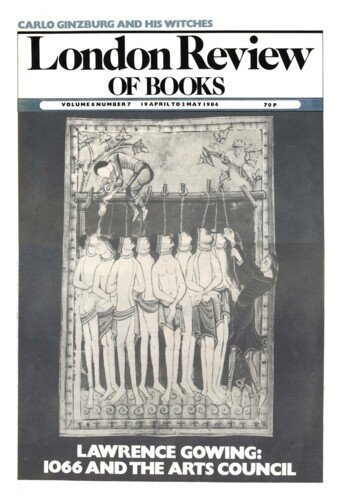Constancy
Blair Worden, 10 January 1983
Neostoicism is neither as difficult nor as remote a subject as it may sound, although to grasp its full importance we would need a keener sense than most of us have of the pressing relevance of Classical Antiquity to the thought and values of Renaissance Europe. The term is given by historians to the cult of Stoic ethics – especially of Senecan ethics – at the courts and universities of the late 16th and early 17th centuries. Against the grim background of protracted civil war in the Netherlands, in France and in Germany, Neostoicism offered a philosophy of fortitude and consolation not merely to intellectuals but to princes and statesmen. It was a philosophy for laymen, who found in pagan literature a restorative retreat from the conflicting ideologies of Calvinist Geneva and Tridentine Rome.




